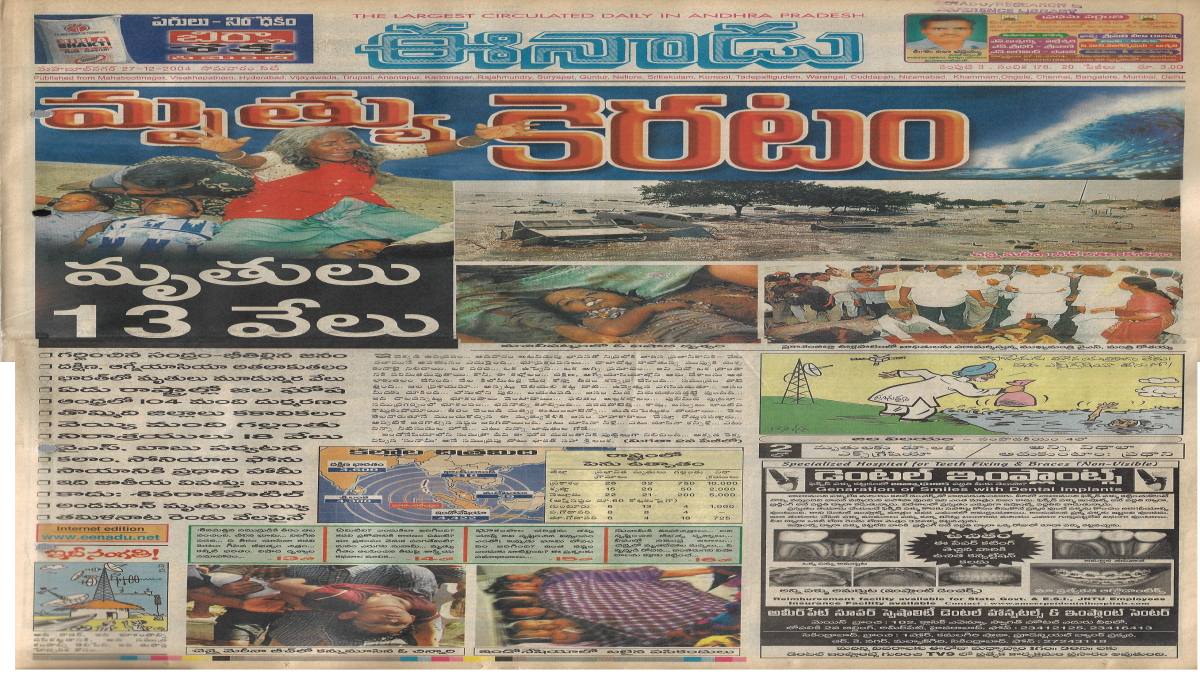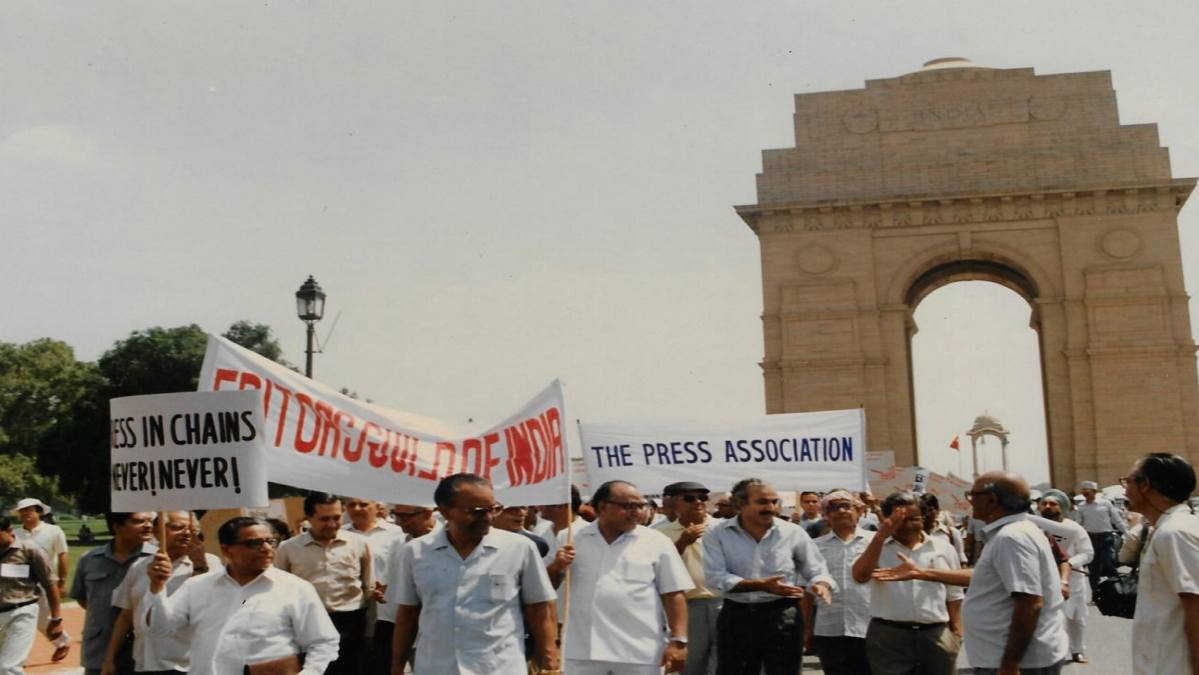Newspapers play a crucial role in highlighting both the positive and negative aspects of society. For over 50 years, 'Eenadu,' under the leadership of Ramoji Rao, has been a powerful advocate for truth and justice, consistently standing up against government overreach, corruption and threats to democratic values.
June 25, 1975: A dark day in India's history. Prime Minister Indira Gandhi declared a state of Emergency, which included strict censorship of the press. Ramoji Rao, the founder of 'Eenadu,' refused to accept this and stood up against the censorship imposed on newspapers.
50 years of service: Standing up for the public
Over its 50-year history, 'Eenadu' has consistently supported the people by holding the government accountable for its actions. The newspaper has not hesitated to challenge authorities when necessary. A notable example of this occurred in 2004, when 'Eenadu' uncovered and exposed corruption within the government of YS Rajasekhara Reddy. The newspaper revealed how public resources were being misused, including the illegal appropriation of land and resources for personal gain.

In response to these revelations, the YSR government retaliated by targeting Ramoji Rao and 'Eenadu.' The government attempted to destroy properties owned by Rao, including parts of the Ramoji Film City, a major film studio complex. Buildings and infrastructure within the Film City were demolished, and roads that served local communities were damaged. Despite these aggressive measures, Ramoji Rao did not back down. He fought the government's actions through legal channels and continued to publish critical reports. His perseverance during this difficult period demonstrated his commitment to journalistic integrity and the public interest.
2019-2024: Defending Democracy Against Authoritarianism
Between 2019 and 2024, the state saw a rise in authoritarian practices under the leadership of YS Jaganmohan Reddy. During this time, 'Eenadu' took a firm stand against the government’s misconduct. The newspaper faced significant harassment, including threats and attempts to intimidate its staff, but it remained steadfast in its mission to report the truth.
'Eenadu' played a crucial role in exposing government abuses of power and voicing the concerns of the public. The newspaper’s fearless reporting helped to challenge the government's actions and contributed to significant political changes in the 2024 elections. This period underscored 'Eenadu's' role as a vital counterbalance to authoritarianism and a defender of democratic principles.
Gaining Respect and Trust
Despite facing opposition, 'Eenadu' earned the respect and trust of both the public and political leaders over the years. Even those who initially criticised or disregarded the newspaper came to value its influence and reliability. For instance, former Chief Minister Marri Channa Reddy, who once declined to attend an event organised by 'Eenadu,' later acknowledged the newspaper's importance. He admitted that he relied on 'Eenadu' for accurate and timely information, especially during emergencies such as floods and storms. This respect reflects the newspaper’s role as a trusted source of news and its impact on public and political life.
Ramoji Rao’s Defiant Stand in 1983: A Landmark Battle for Press Freedom and Democratic Rights
Ramoji Rao's battle for press freedom is indeed a significant chapter in Indian media history. The controversy from March 9, 1983, surrounding the Legislative Council's decision and the subsequent legal and political manoeuvres showcases his relentless commitment to journalistic integrity and freedom.

The conflict began when Ramoji Rao's newspaper published a critical piece titled 'Elders' squabble', which led to a strong reaction from some political quarters. The Legislative Council, led by Congress MLCs, sought to discipline Rao by ordering his arrest, which triggered a constitutional crisis. Despite the Supreme Court's stay on the arrest order, the situation escalated, with significant pressure from political and legal entities.
The dramatic climax occurred on March 28, 1984, when Hyderabad Police Commissioner Vijaya Rama Rao attempted to serve the arrest warrant. Rao's decision to resist arrest, coupled with the Supreme Court's stay order, highlighted the tension between press freedom and political authority. This incident brought national attention to the issue of media rights and set a precedent for press freedom in India.
Ramoji Rao's leadership in the Editors Guild of India further solidified his position as a defender of press freedom. His efforts contributed to the broader discourse on media rights and democratic values, emphasising the role of the press as a powerful and autonomous institution in a democratic society.
Ramoji Rao's strong dedication to press freedom and integrity has made 'Eenadu' a trusted and influential voice in India, consistently defending democracy and the rights of the people.



